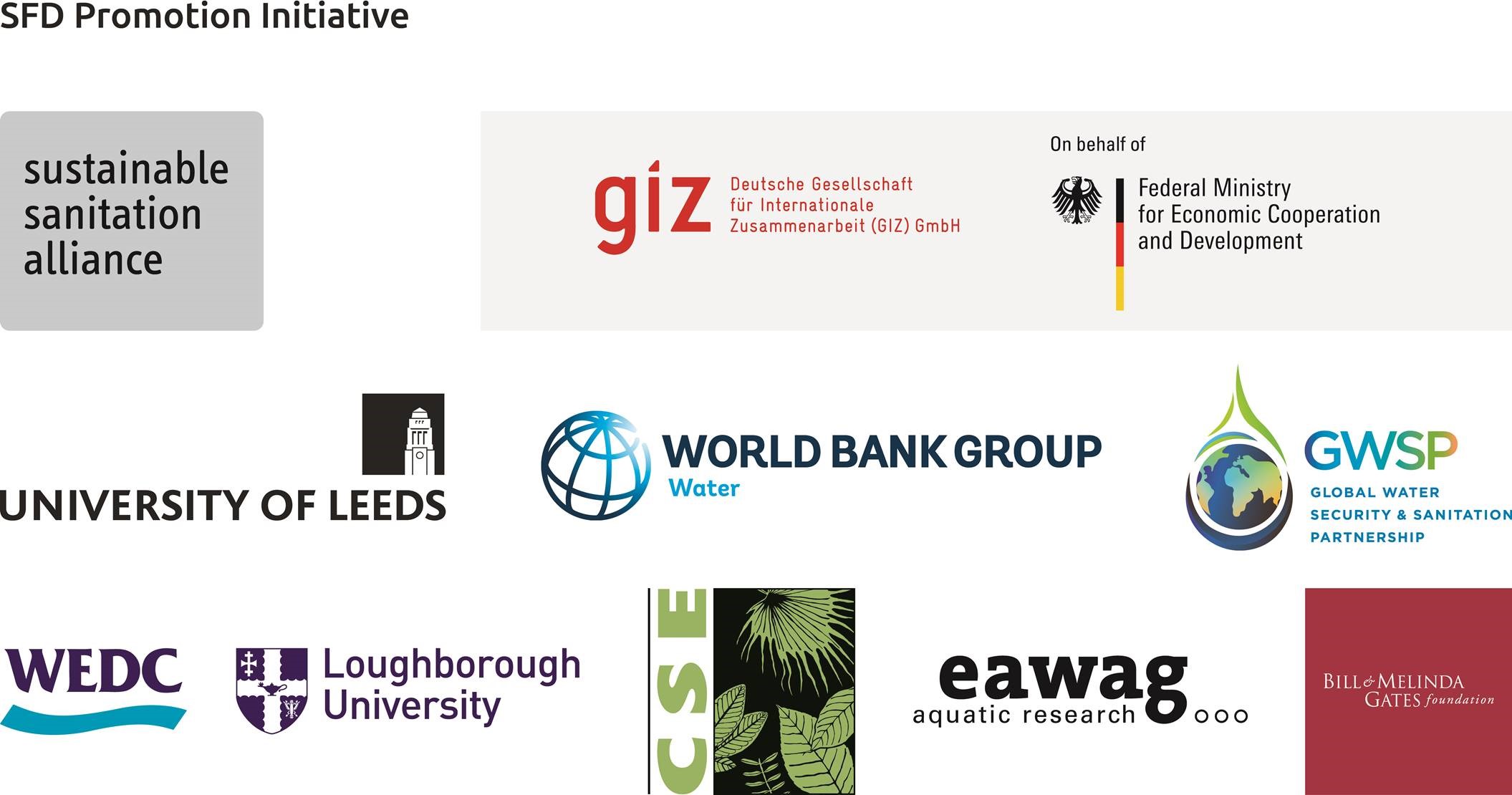During 2012-2013 the Water and Sanitation Program (WSP) of the World Bank carried out an analysis of excreta management in 12 cities and developed new tools for assessing the context and outcomes relating to the flow of excreta through the city. This study aimed to provide a more comprehensive understanding of excreta management along the sanitation service chain.
Building on this work, a group of institutions active in the field of excreta management convened in June 2014 to further develop SFDs, and in November 2014 a one-year project titled the SFD Promotion Initiative started, funded by the Bill & Melinda Gates Foundation.

The second phase (2015-2018), consisted of rolling out the approach and method developed. The tools available to produce SFD Reports have been improved, and new resources have been provided. The SFD approach has been promoted and shared with potential users at trainings and conferences. As a result, more than 240 SFD Reports have been published, and even more SFDs are still being produced across the world.
The ongoing phase three of the SFD Promotion Initiative has started in September 2019, focusing on scaling up the Shit Flow Diagram approach to bridge the existing gap in availability of data for monitoring safely managed sanitation (SDG 6.2) and for improved planning to achieve citywide sanitation in South Asia and Africa. Additional activities of phase three include: the maintenance and further improvement of the SFD webportal and improved data collection tools, as well as strengthening the link between SFDs and JMP monitoring for SDG 6 and increasing the global dataset of SFDs on SuSanA.
References:
Blackett, I., Hawkins, P., Heymans, C. (2014). The missing link in sanitation service delivery. A review of fecal sludge management in 12 Cities - . Water and Sanitation Programme (WSP), International Bank for Reconstruction and Development/The World Bank


